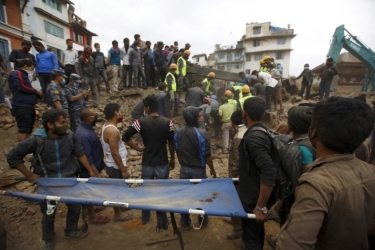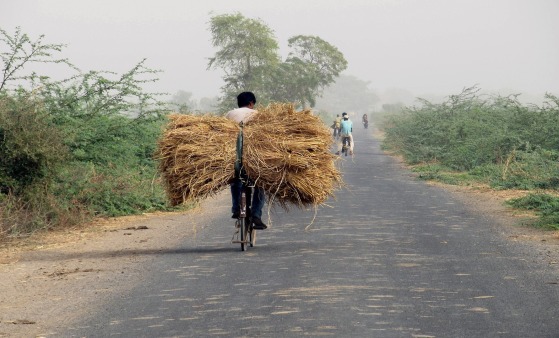
Christian Aid partners are providing urgent relief to victims of the 7.8-magnitude earthquake that struck Nepal and parts of India, leaving over 5,000 dead and thousands more severely injured.
This work will be funded by Christian Aid's emergency appeal, launched on Sunday. The charity has already sent £50,000 to support the work of local partner agencies in the region, and will scale up its operations in the days and weeks ahead.
Christian Aid's Ram Kishan, Regional Emergency Manager for South Asia, based in Delhi, said: "Nepal is one of the poorest countries in the region and has one of the least capacities to deal with an emergency of this scale. Medical services and hospitals are facing an immense strain at the moment. In Kathmandu Valley, hospitals are overcrowded, running out of room for storing corpses and also running short of emergency supplies.
"At the moment we know that 6.6m people have been affected. However, the numbers are likely to increase because the earthquake epicentres - mainly Gorkha, Makwanpur and Lamjung - are still not accessible. Those affected will have immediate and long-term needs emerging in the coming days. The most pressing need at the moment is for food, water supplies, medication, blankets, hygiene kits and other essentials for people who are displaced."
Commenting on the longer term consequences, Ram Kishan said: "Largely, people are going to be hit in terms of housing, access to basic amenities and livelihoods. Access to many places in Nepal under normal circumstances is very limited, but many villages are now cut off from the main highways. A lot of people are dependent on small shops, and they will be hard-hit because farmers' produce will not be able to get to the markets.
"The number of deaths will have a serious impact on the households. There will also be significant disruption to essential services – water supplies, sanitation facilities and electricity are already in a bad shape, and this is going to be further affected because of the harm to public infrastructure."
This was Nepal's worst earthquake in eight decades. The disaster also reached the neighbouring north Indian states of Uttar Pradesh, Bihar, and West Bengal.




